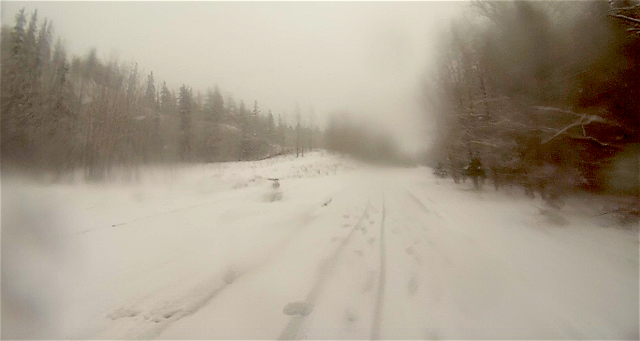The Dead
 |
| Gianni Giordano memorial today, 95 St, Edmonton |
That is the assessment of John Durham Peters, who effortlessly wheels these kinds of weighty aphorisms out of the cornfield deep of Iowa City, where he practises media scholarship at the public university.
Indeed, those beings not admitted to a communication network—whether, at various times in history, the slaves or caged hens or the unborn or the dying or the Athabasca River or children or bees or jailed criminals or HIV patients or glaciers or women or undergraduates or immigrants—share in common this: either their volume has been adjusted to zero or the frequency of their voices conveniently escapes the receivers of the political power machinery of the time.
And, so, the obverse of the JDP formulation can also be heard. Control the political game by controlling the turnstiles to the arena of conversation.
 |
| Fatality sign, Edmonton |
From one perspective, it is a silly quest. By definition, the dead don't speak. The voice belongs to the body, and, when the body in a crosswalk gets pasted by a couple tons of automobile exoskeleton and is dumped in the hospital emergency ward with a femur sticking out here and brains leaking out there, the voice is as dead on arrival as the flesh.
But what is interesting is that that account is not good enough for the languaged creatures we are.
It is heartbreakingly compelling to hear, say, the father of a 27-year-old man killed by an automobile driver on Whyte Avenue testify that it is time to "become more vocal" about pedestrian safety. Heartbreaking because, as he says, "it's about the only thing we can do to make some sense out of this horrible hole in our lives."
Making sense means making sound on behalf of the silenced. And it is a noble and humane mission to try to give voice to the dead, even symbolically.
And there are doubtless other ways to use our living voices for the traffic dead.
 |
| Fatality scene, Edmonton |
But is there something more? Could there be something more? What would it sound like to actually hear from the dead as dead? Now, that would be a communication innovation on Dante's scale.
What would they say?
What words would they use to describe the terror of death being a split-second away? What words would they use to describe the horrible sound of the collision? What would they tell us flashed through their minds as they remembered scenes from childhood, voices of parents, laughter, music from years ago? What smells would they describe? Would it be the love cooked into bacon and eggs and brewed into coffee on Sunday morning? What would they say from beyond to their parents and grandparents and boyfriends and girlfriends? And to the other people involved in the collision? And to the city's political leaders? And to the stranger who covered them up with a jacket until the sirens arrived?
Maybe we just have to do a much better job imagining what they might say about being killed, and that might be a heart-opening exercise in itself. But I can't help but imagining there is another answer waiting to be heard.
#visionzero



Comments
Post a Comment